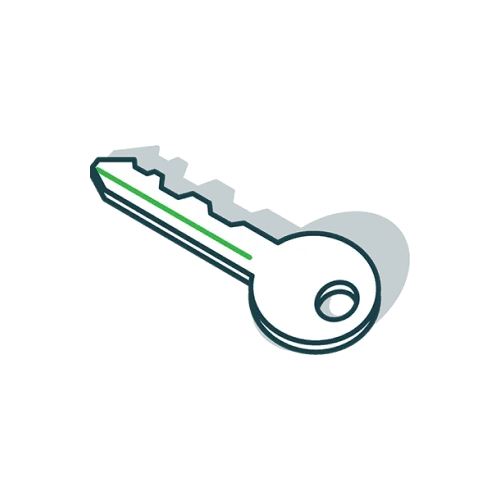Managing rental properties is a lot of work. As a landlord, your investment of time and money into a property must pay off. Being a good landlord isn’t cheap. That’s why it’s pivotal to have landlord insurance as a safety net in case things go wrong. But how will your landlord insurance policy help you when your rental property is vacant? Let’s take a look.
Does Landlord Insurance Cover Vacancy?
Landlord insurance doesn’t cover costs associated with standard vacancies, such as not being able to find a tenant or a lease ending. However, landlord insurance may cover costs when a tenant is forced to move out due to a covered peril, such as your rental property sustaining major damage from a hurricane.
Landlord insurance plans are similar to home insurance plans in a few ways because both protect the structure of the building and provide some liability coverage. An added feature of a landlord’s policy, though, is loss of rental income coverage. It could be included in some plans or it may be purchased as an endorsement in others.
If your rental property gets damaged by a covered peril and your tenants are forced to move out, your loss of income coverage will enable your provider to pay the rent while the property is being repaired or rebuilt and tenants can’t live there.
For instance, if a fire, tornado, or hurricane wrecked your rental property to the point where your tenants had to move out, your insurance could cover some or all of that rent you would be losing out on while they’re gone.
But you’ll need to have sufficient coverage. You’ll want to have enough dwelling coverage to cover your property wholly in case a total rebuild is necessary, and enough loss of income coverage to supplement rent for the duration of the period when you don’t have tenants. Some companies offer loss of rental income coverage up to six months, others offer up to a year.
Also, when covering loss of rental income, insurance companies don’t always pay the exact amount your tenants paid. Providers will cover what they deem the fair market value of rent in the area, which may fall short of exactly what your tenants paid in some cases.
For instance, if your tenants paid $2,000 a month in rent, but the insurer determines fair market value in the neighborhood is $1,500 a month for rent, they will only dish out the $1,500. Be sure to discuss this potential difference in payout with your provider when getting your landlord policy to understand how they determine fair market value.
It’s important to note that landlord insurance coverage for rental properties doesn’t guard against flood damage, so you won’t be covered if your tenant is forced to move out due to a flood. This is where flood insurance comes into play.
Landlord Insurance and Vacant Homes
If your rental property is vacant for an extended period, your landlord insurance may not cover it at all after a while. For instance, if you’re renovating your rental, or if you only rent out a property seasonally so that it’s empty for part of the year when there are no tenants in it, you may want to look into vacant home insurance.
Most landlord policies won’t cover a house that sits empty for more than a month. If your rental property plans to be vacant for at least 30 days, notify your insurer. They may require you to add a vacancy endorsement to your property, or they could require you to get a vacant home insurance policy to maintain coverage.
Vacant homes represent a greater risk to insurance companies since no one is at the house to stop or prevent any damage should something go wrong. For example, a broken pipe spewing water in an empty house could go unnoticed for weeks or months and cause massive amounts of damage.
A broken pipe in an occupied house is much more likely to be noticed more quickly, and residents can do what they can to mitigate damage quickly.
Not all companies will insure vacant homes, and your insurance carrier could deny coverage and even drop you if you fail to notify them that your insured property, which they believe has tenants in, is actually vacant. Be aware of your insurance needs, and always be transparent with your provider.
Does Landlord Insurance Cover Eviction?
Evicting a tenant is a worst-case scenario, and, unfortunately, it can get costly. Landlord insurance typically won’t help you with eviction costs. Eviction requirements vary by state and situation, and they’re often accompanied by legal disputes. Your property insurer tries to steer clear of these legal hurdles, but you can purchase eviction insurance from some companies.
While landlord insurance usually covers accidental tenant damage to the building, most cases of intentional tenant damage, such as vandalism, aren’t covered. If a tenant you’re about to evict angrily trashes your house before they leave, your insurance likely won’t help you out.
Typical landlord policies also won’t cover you if your tenant missed rent payments. Landlord insurance coverage for rental properties focuses on covering the building and what can happen to it. Your insurer isn’t responsible for your tenant missing or defaulting on rent payments.
Some companies do offer rent guarantee insurance, or guaranteed rental income insurance. This is a separate policy that protects landlords financially when their tenants miss payments. It also can cover some eviction-related costs. It is usually quite expensive, though, and most mainstream insurers don’t offer it, and they don’t offer it as part of landlord insurance.
The editorial content on Clovered’s website is meant to be informational material and should not be considered legal advice.

